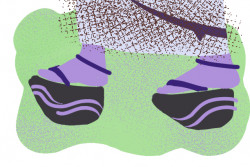
Originally published on metropolis.co.jp on September 2013
TELL (Tokyo English Life Line) joins thousands of organizations worldwide in marking World Suicide Prevention Day every year on September 10. Metropolis asked director Vicki Skorji some questions regarding the organization, why people might choose to take their own life and how people can help.
What is TELL?
TELL is one of the original members of the federation of Inochi no Denwa (Japanese lifeline) that has been fighting this problem for over 40 years. TELL is the only English-speaking lifeline within the federation and has been very active in raising international awareness about this topic. By presenting accurate facts about the issue, TELL hopes to dispel the many myths and stigmas that create barriers to effective treatment.
What is World Suicide Prevention Day?
World Suicide Prevention Day (WSPD) is a global day of awareness cospondored by the International Association for Suicide Prevention (IASP) and the World Health Organization (WHO) that takes place each year on September 10. This year will be the 11th WSPD and the third time that TELL will hold an event to mark the day. There will be a series of presentations and discussions along with a candle light vigil happening on Saturday September 7 from 4-7pm.
We are very fortunate to have two distinguished presenters: Professor Sawada from the University of Tokyo, and Dr. Rene Duignan, producer of the film Saving 10,000: Winning a War on Suicide in Japan. Dr. Duignan launched the documentary at TELL’s WSPD last year, and is returning this year to discuss its success. TELL has been encouraged at the attention and interest this documentary has received from the community, the government and even international film festivals.
What are some common stigmas surrounding suicide?
At the heart of most suicides is a mental health problem, typically a mood disorder such as depression that is not getting the attention it needs. Strangely mental illness is typically ignored in the empirical literature on suicide in Japan. Mental illness is found in all cultures, socioeconomic groups and ages—chances are that you or someone close to you will experience a mental illness in their lifetime. However, current estimates suggest only a quarter of those who experience a mental illness reach out for support. Japan’s ability to address mental health needs is greatly lacking in comparison to other developed countries. The focus of this year’s WSPD is stigma. Despite decades of medical advances, little has been achieved in reducing the stigma that surrounds mental illness. While there have been clear reductions in the amount of stigma associated with certain physical illnesses such as cancer, tuberculosis, and “brain illnesses” such as epilepsy and multiple sclerosis, this is not the case with mental illness.
In Japan, even if people are willing to reach out for treatment, there are limited counseling options available and most only have the option of medication and a brief consult with a psychiatrist. Stigmas create a wall of silence around all of these challenges and issues, such as the cost and needs of those suffering, and one we want to talk about on Saturday.
What are the numbers like for Japan?
The current figures for Japan suggest that the number of suicides will again decline similarly to 2012 and fall below the 30,000 mark which is very encouraging. However, the number is still staggeringly high—especially for a developed country—and it still stands at twice the rate of Australia, Canada and the USA, and more than three times as high as Italy and the UK.
Each year around one million people will take their own lives. Suicide has now become one of the leading causes of death worldwide, surpassing the number of deaths by homicide and war combined. This is roughly one person dying from suicide somewhere in the world every forty seconds. But this figure is more than just numbers: it is real lives cut short, the pain of loved ones lost, families shattered and the emotional upheaval of friends and peers as people struggle to understand why.
What are some common warning signs?
Some of the common warning signs of suicide include:
- Talking about wanting to die or to kill themselves
- Talking about feeling hopeless or having no reason to live
- Talking about feeling trapped or in unbearable pain
- Talking about being a burden to others
- Increasing the use of alcohol or drugs
- Acting anxious or agitated; behaving recklessly
- Sleeping too little or too much
- Withdrawing or isolating themselves
If you notice a change in someone’s behavior that includes any of these, then reaching out to them and to others is the best way to keep them safe.
TELL’s Lifeline has a list of resources and support services across the country you can contact. The Lifeline can also speak with and support the person who is feeling suicidal.
Our Lifeline (03-5774–0992) is open every day of the year from 9am-11pm. It is an anonymous and safe place to call.
How can readers get involved?
TELL’s Lifeline has gained a reputation for quality training in client-centered counseling that can be as useful in everyday life as it is in counseling. The training program is a tremendous opportunity for self-exploration and growth, as well as a chance to meet a great group of like-minded friends. Graduates of the program go on to provide emotional support to people in need in our own community. The Life Line is a rare volunteer opportunity that allows us to directly help those in need.
According to TELL’s Training Program Coordinator, Jason Chare, “The lifeline training program attracts a really diverse group of people, of all ages and nationalities. Some are looking for adult education opportunities or hoping to kick-start a career in counseling. Others just want to make friends or give back to the community. Whatever the reason, for many, volunteering on TELL’s Lifeline is the most challenging and rewarding part of their Japan experience.” Currently we are accepting applications for the Fall 2013 training which will begin on September 21.
If you would like any further information about TELL’s WSPD or Lifeline training, please visit our website www.telljp.com, or email Vickie Skorji, Lifeline Director at lifeline1@telljp.com.
Join TELL on World Suicide Prevention Day and learn how you can help challenge and confront the stigmas associated to suicide.
Sep 7, 4-7pm @ Wesley Center. More info: meturl.com/tellwspd








